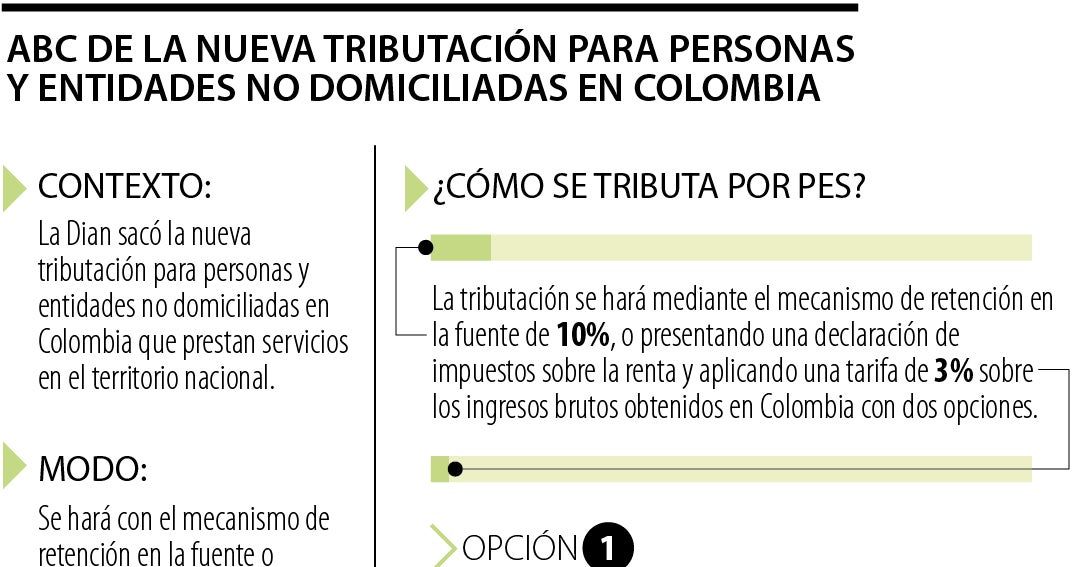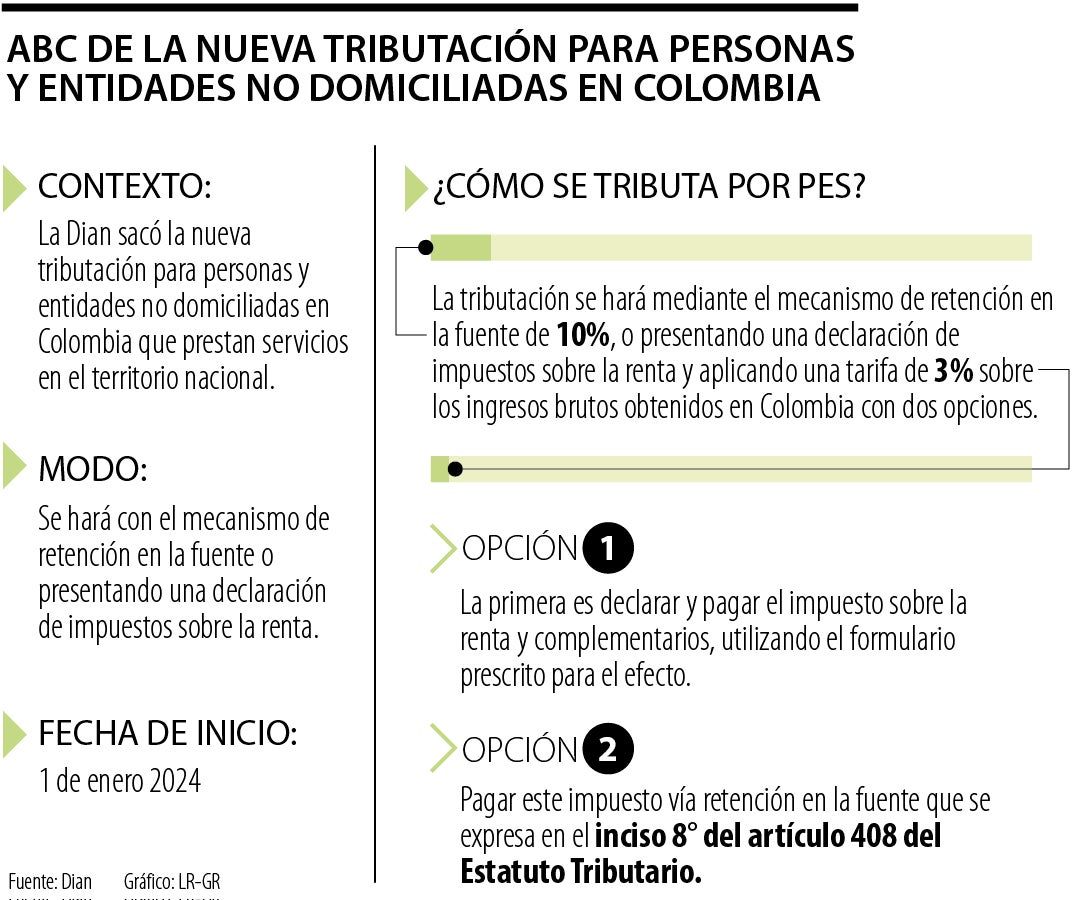Diane’s new taxation for people and entities not resident in Colombia

This Diane New taxes have been introduced for non-residents of Colombia and organizations that provide services within the national territory. The entity reported that this would be done with the withholding method at source or by submitting an income tax return and that from January 1, taxation for significant economic presence, PES, began to rule.

It should be noted that the effective taxation for Significant Economic Presence (PES) established by the National Tax and Customs Directorate, Dean, falls under the Taxation Law, s.On non-resident individuals and entities not domiciled in Colombia that generate income from the sale of goods and/or the provision of services to customers and/or users located in the national territory.
How is PES taxed?
Depending on the entity, this tax will be done either through a 10% withholding mechanism at source or by submitting an income tax return and Applying a rate of 3% on gross income received in Colombia with two options.
First, in the opportunities indicated by the national government, declare and pay income and supplementary taxes using the forms prescribed for this purpose. In this case, the taxpayer must choose between not applying withholding at source (subsection 8 of Article 408 of the Tax Statute) or applying it. The second is to pay this tax through withholding at source, which is expressed in paragraph 8 of Article 408 of the Tax Statute.
How to register or update RUT with PES taxation liability?
Persons subject to PES taxation can request registration or update RUT, Providing the documents required in clause 11 of clause 1.6.1.2.11. Decree 1625 of 2016, through the following channels such as the ‘PQSR and Complaints’ service on the Diane website or by scheduling a virtual appointment at this link.
What documents have to be submitted?
It is divided into two parts, in case of natural persons you must have a copy of the identity document. But in the case of companies and organizations, there must be a copy of the documents that prove the existence and legal representation (in Spanish) properly apostilled or legalized. If these documents do not include information on the country of tax residence, Tax identification number, main address, postal code, telephone numbers, website and email, this data must be certified by a legal representative or attorney-in-fact through a document in Spanish or translated by an official translator and a copy of the legal representative’s identification document.
(TagsToTranslate)Construction


:quality(70):focal(2186x1851:2196x1861)/cloudfront-eu-central-1.images.arcpublishing.com/liberation/IPSHUBFIFJH5DN3F2KYKVINDYU.jpg)


